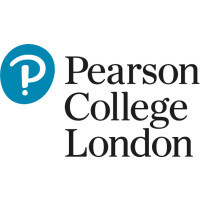Apprenticeships combine working, earning and learning and allow apprentices to learn in a practical manner to gain a qualification alongside work experience. However, earning a salary, getting a qualification and experiencing the workplace are only the tip of the iceberg when it comes to the opportunities you can get from an apprenticeship.
The number one thing an apprenticeship can do for you is growth. This can mean growth as a person, growth in knowledge, growth in career trajectory and growth in potential to achieve.
So what other opportunities can you gain from an apprenticeship?1. Workplace Skills
Other than the skills within the role you fulfil as an apprentice, there are a wealth of other skills you can master long before other people of your age as an apprentice. This refers to workplace skills such as:
These are skills that are learned through application, not in a classroom or lecture hall. They can be taught, yes, but not experienced.
“From the very first day of my apprenticeship, I was expected to complete skills that couldn’t be taught at school. I was writing professional emails to my seniors, taking minutes in meetings and learning how to use various internal communications platforms all at once! It’s the only effective way to learn these critical elements of job roles.” - Katie Fiddaman, Chartered Management Degree Apprentice
These are the skills that graduates often lack when entering the workplace; completing an apprenticeship can truly aid the learning and early application of these skills.
2. Knowledge
Knowledge within an apprenticeship can come in all forms and from all directions. The most obvious is the qualification side of the apprenticeship, where you will be learning with a training provider about whatever the apprenticeship standard includes, i.e: Business Management, Construction or Nursing to name just a few.
However, the real growth in knowledge from an apprenticeship comes from the other forms of learning. These can include:
"From the minute I started my apprenticeship, I was exposed to training I would never be experiencing had I followed a traditional pathway. This has not only helped me to complete my job role more sufficiently, but given me applicable knowledge for the future." - Emma Devlin, Degree Apprentice at Pearson College London
3. Recognition from employers
According to Pearson Business School’s education and skills survey, 37.5% of employers’ most important consideration when recruiting university graduates is an aptitude and readiness for work. Further to this, 77.6% or businesses in London also expect to increase the number of higher-skilled roles in the next five years.
This proves that the demand for apprenticeships and the requirement to have these skills will not only upskill you quicker, but will also make your CV much more attractive to potential employers.
“Since I started my degree apprenticeship I have not looked back. I wanted to study Business Management, a degree that a lot of young graduates obtain in the UK, and therefore needed to differentiate myself from the competition. My Chartered Manager Degree Apprenticeship (CMDA) programme at Pearson College London has been the perfect way for me to combine work and study, applying theories to the workplace and vice-versa.” - Niamh Mulhall, Degree Apprentice at Pearson College London
4. Build Networks
One of the most crucial skills required,s networking. There is that cliche phrase: “It’s not what you know, it's who you know.” This is true to a certain extent because having the skills, knowledge and experience is the first step; however, getting a foot in the door can be a lot easier if you have a meaningful connection with someone.
Just being in the workplace as an apprentice is networking in itself. If you don’t have a Linkedin account, make one! People will come and go from your particular workplace, but if you make an impact, they will remember you. Attend as many events as possible to build those connections as you never know when someone could come handy, whether it’s for a job or a project.
As an apprentice, you can also join the Young Apprentice Ambassador Network (YAAN). This is a network of apprentices aged 16-25 whose main goal is to encourage more young people to consider apprenticeships. However, to a member of the YAAN, it can be so much more than that: it is a perfect opportunity to meet and learn from other apprentices, building professional connections and discovering more about the range of apprenticeships in the UK.
5. Personal Skills
Finally, as well as professional and educational skills, apprentices can develop personal skills. Some examples are:
Some of these can be learned throughout school or via a traditional education pathway; however they can be practiced and perfected through an apprenticeship programme.
“As an apprentice you learn to work in a corporate environment with colleagues who can be a lot more experienced than you. Therefore it may seem a daunting prospect suggesting ideas and giving opinions; however a fresh view is always welcome. Once I started realising that my input was valued, it really boosted my confidence and has encouraged me to contribute more in the future.” - Matilda Pinn, Events Assistant and Degree Apprentice
You may have demonstrated one of the skills in a sports team environment, during school or within an extracurricular activity. However, using the workplace to grow these skills further is the key to success.
In summary, apprenticeships are arguably the best way to grow within a qualification, both personally and professionally and offer a wealth of skills, knowledge and experience. To find out more about Pearson College London’s degree apprenticeships, visit their website.
